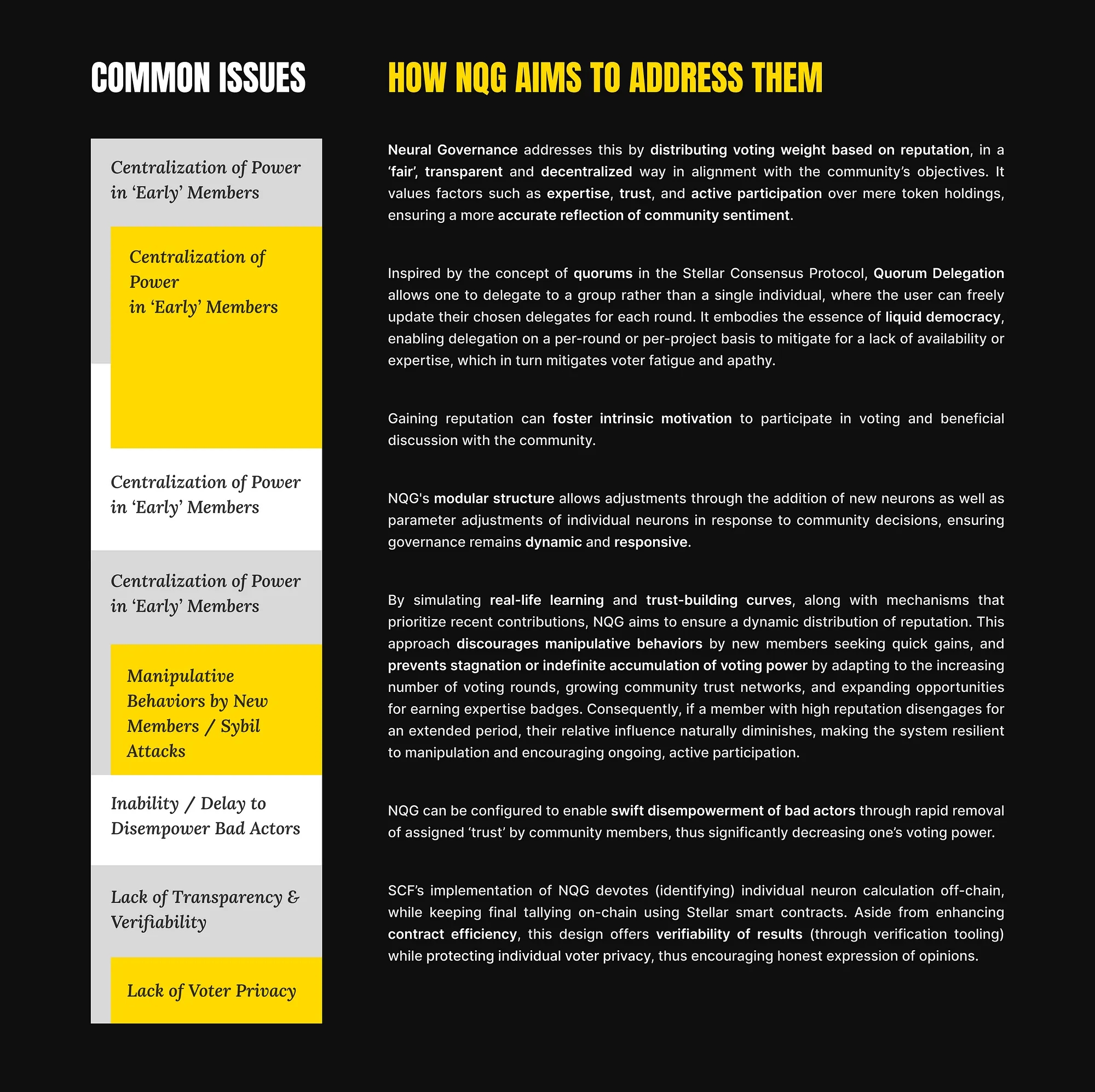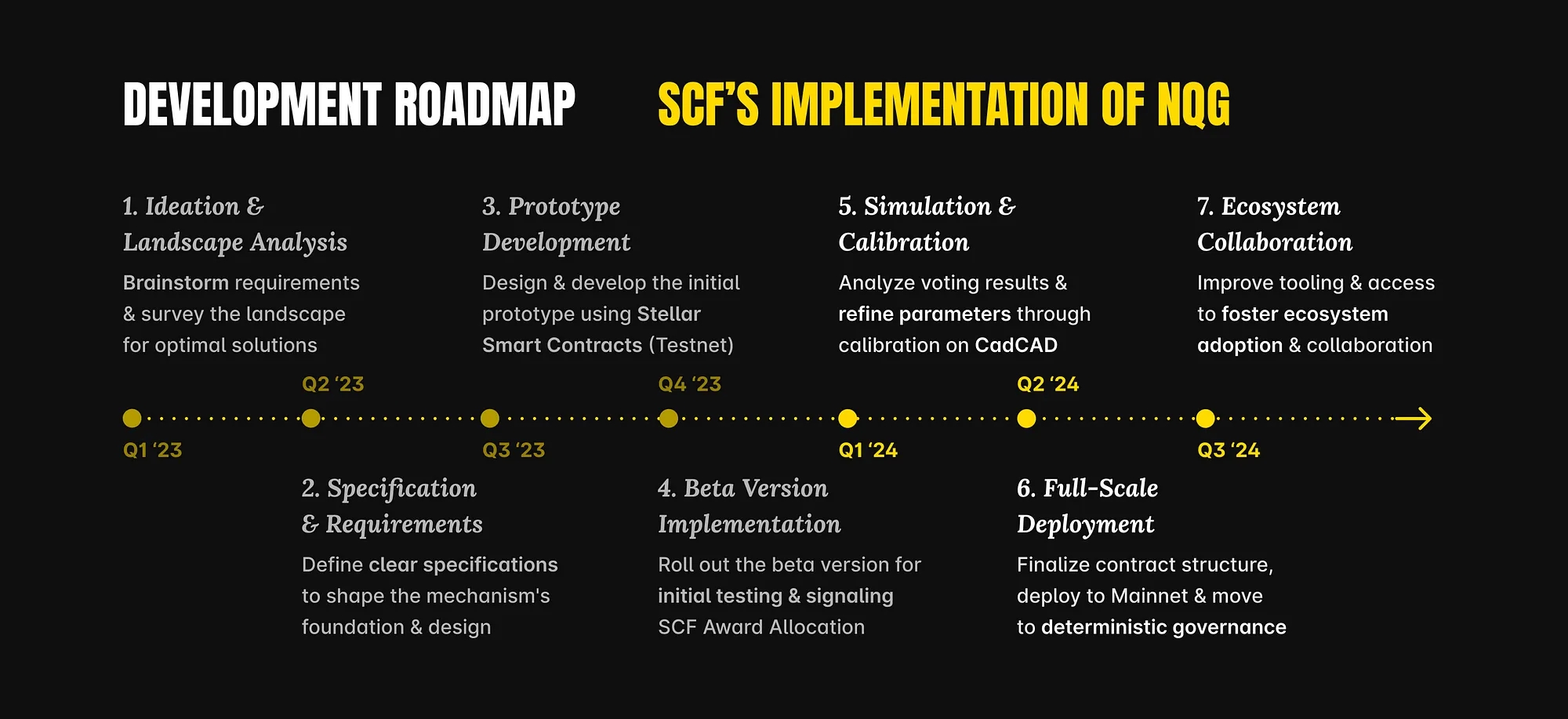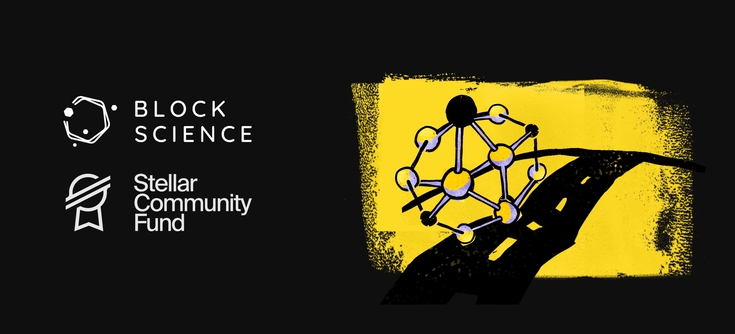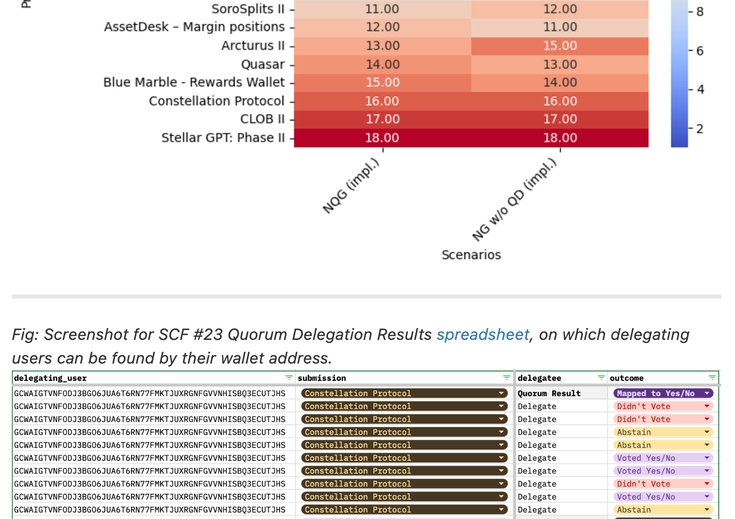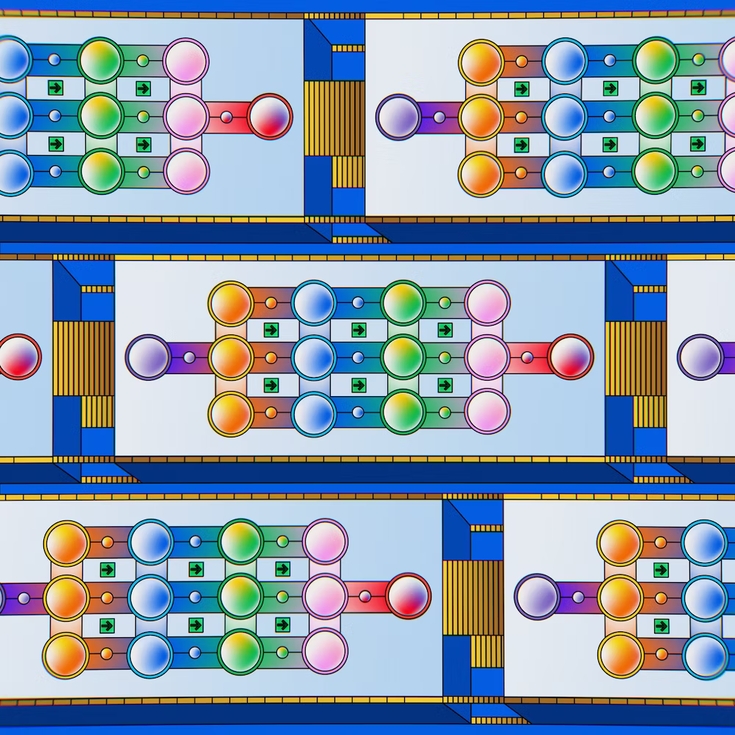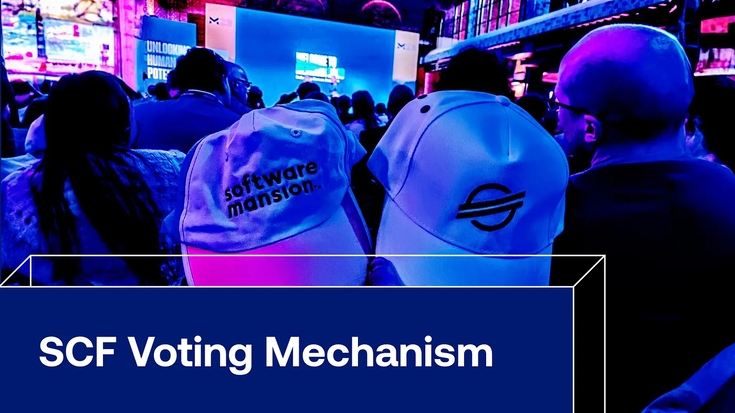Neural Quorum Governance
Since October 2023, SCF utilizes a reputation-based voting mechanism to signal community input in Award Allocation in the Community Vote phase. Neural Quorum Governance (NQG) is a novel governance and voting mechanism explicitly designed for SCF in collaboration with R&D firm BlockScience.
This mechanism is modeled after neural networks and contains layered voting neurons that allow members to adjust their voting weights based on their expertise, trust given by peers, and historical contributions to the SCF. In addition, voters can delegate their weighted votes to a group (or quorum) of other individuals, which draws inspiration from the Stellar Consensus Protocol.
The Vision for Neural Quorum Governance
NQG introduces a liquid democracy mechanism that combines reputation-driven voting power (Neural Governance) with the flexibility of opt-in delegation (Quorum Delegation). NQG aims to set a new governance standard that prioritizes community alignment, participation, and adaptability, effectively addressing common, hard-to-solve issues experienced amongst voting and governance mechanisms.
Neural Governance and Quorum Delegation have been added as individual modules in the Governance Modules Library (GML) created by BlockScience, a curation of both new and classic templates that can be readily implemented and tuned to specific applications which depend on or require governance solutions.
Stellar Community Fund’s Implementation of NQG
The inaugural implementation of NQG will be used to signal award allocation of the Stellar Community Fund (SCF), an open-application awards program managed by the Stellar Development Foundation (SDF) that draws on community input to support projects building on Stellar.
Phase 1–4: Ideation, Specification, Prototype Development & Beta Version Implementation
Completed in 2023
Guided by BlockScience’ ‘Engineering Design Process’, our journey commenced with the ideation phase, surveying existing solutions and mapping out the landscape of desirables and requirements. A prototype emerged, leveraging the novel capabilities of Soroban, the smart contract platform on Stellar, then in its testnet phase. Through this exploratory stage, we encountered and addressed challenges related to testnet limitations, optimizing our prototype for better efficiency and verifiability. From SCF #20, a beta version of NQG was implemented, serving primarily as a signaling mechanism for SCF’s award allocation, marking our first step towards operational deployment.
In collaboration with BlockScience, several resources were developed during these phases:
Phase 5: Simulation & Calibration
Starting Q1 ’24
Objective: To conduct data & simulations driven optimization over NQG’s parameters, structure and neurons by using cadCAD and historical data for modeling a diverse set of scenarios in terms of what-ifs and governance-originated adjustments.
Publish detailed periodical data & simulation driven reports and seek community feedback through Discord, structure discussions, and direct consultations, ensuring a broad spectrum of insights to inform the calibration process.
Leverage cadCAD-based simulations to validate the NQG performance by assessing voter behavior, award allocation outcomes, and overall system resilience.
Explore dynamic voting power attribution within neurons, simulating real-life learning and trust curves instead of linear voting power attribution, alongside inflationary mechanisms to ensure fairness and adaptability.
Phase 6: Full-Scale Deployment within SCF
Starting in Q2 ‘24
Objective: To transition towards a fully operational NQG system within SCF, incorporating lessons learned and community feedback.
Open-source the NQG contract and the validating simulation code repositories on GitHub, making the NQG framework accessible for peer review and collaborative improvement.
Finalize and optimize the contract structure on Soroban, designing for a balance between on-chain verification and off-chain computation to maintain system integrity and transparency (supported by verification tools).
With Soroban’s mainnet launch, we plan to extend the NQG system to Stellar Mainnet, marking a significant milestone in our governance evolution.
Moving selected neurons calculations on-chain as relevant (e.g. Voting History), promoting progressive decentralization.
Introduce the Expertise neuron, integrating with an open-source POAP distribution system built on Stellar.
Make adjustments to the system based on feedback and insights gained.
Phase 7: Ecosystem Collaboration
Starting in Q3 ‘24
Objective: To bootstrap collaboration on governance modules within and beyond the SCF ecosystem through an accessible and agnostic library, contributing to a sustainable and representative governance of our digital future.
Develop a holistic governance framework to streamline structure and governance changes within SCF’s NQG implementation based on community feedback.
Comprehensive Documentation and Accessibility: Commit to thorough documentation and easy accessibility of all NQG components, including its structure, neurons, and supportive tools.
Foster Ecosystem-wide Innovation and Collaboration: Encourage a culture of innovation, feedback, and collaboration across the Stellar ecosystem.
Pursue Cross-Community Collaboration: Proactively seek partnerships with diverse communities and ecosystems beyond Stellar to explore the scalability and adaptability of NQG.
Get Involved
We invite you to be a part of this transformative journey as we contribute your insights as we shape the future of governance.
Get SCF Verified (and become a voting member!)
Engage through feedback and discussions in the Stellar Developers Discord
Blogs & Updates
Last updated
